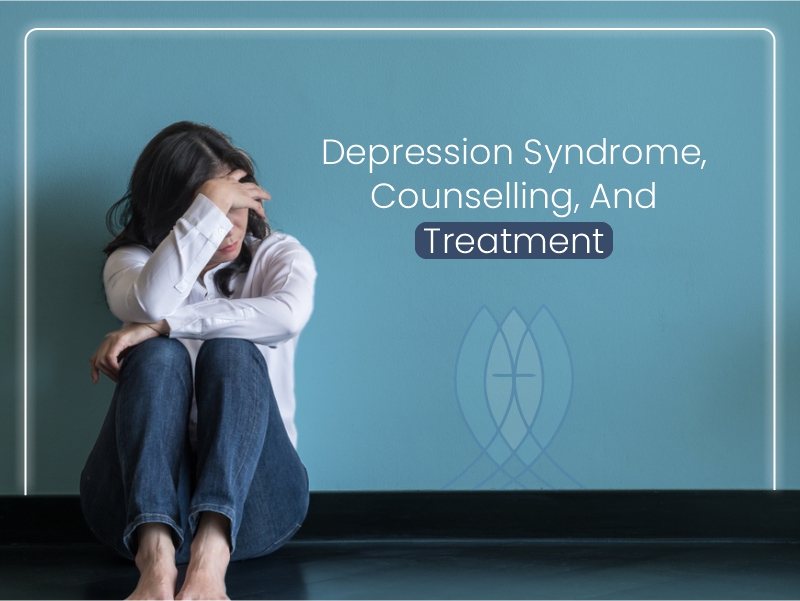Experienced counselling for anxiety disorder support by licensed therapists
Discovering Different Approaches in Coaching for Anxiety Disorder for Enduring Change
When tackling stress and anxiety disorders, it's vital to discover a variety of therapy methods. Each method provides special insights and tools to aid you handle your symptoms effectively. You may locate that incorporating methods can yield the very best results. Recognizing the nuances of these approaches is key to cultivating lasting adjustment. Suppose the ideal combination could release a new level of emotional wellness for you?
Recognizing Anxiousness Problems: A Quick Summary
Anxiousness problems, which influence countless individuals worldwide, can considerably affect day-to-day live. You may experience frustrating sensations of worry or fret that seem uncontrollable. These feelings can cause physical signs and symptoms like an auto racing heart, sweating, or perhaps wooziness. Typical kinds of anxiety conditions include generalised anxiousness disorder, panic attack, and social anxiety problem. Each has special indications, but they all share a tendency to disrupt your regular and relationships.Understanding the root triggers of your stress and anxiety is crucial. It might come from genetics, mind chemistry, or life experiences. Recognizing your triggers can help you manage your actions much better. It is essential to bear in mind that you're not alone in this battle. Many individuals deal with comparable difficulties, and looking for aid is a strong step towards feeling much better. By discovering stress and anxiety conditions, you're currently on the path to understanding and handling your condition better.
Cognitive-Behavioral Treatment: Challenging Adverse Thought Patterns

Recognizing Negative Idea Triggers
When you run into moments of distress, acknowledging the specific triggers behind your adverse thoughts can be vital in taking care of stress and anxiety. Beginning by focusing on circumstances that provoke feelings of fear or fear. Is it a jampacked room, a forthcoming target date, or a discussion with particular people? Write down these instances in a journal. This will help you determine patterns in your thinking. Also, notification physical experiences that accompany your negative ideas, like a racing heart or tightness in your chest. By pinpointing these triggers, you get insight right into what's fueling your anxiousness. Comprehending these connections is the primary step in testing those ideas and inevitably restoring control over your psychological responses.

Changing Ideas With Positives
Testing unfavorable idea patterns is a crucial action in transforming your frame of mind and lowering anxiety. You might usually find on your own trapped in cycles of self-doubt or disastrous thinking. As opposed to allowing these ideas dictate your feelings, technique replacing them with sensible choices or favorable affirmations. For example, when you assume, "I can not manage this," move it to, "I can take care of difficulties one step at once (Counseling services for anxiety)." This basic modification can greatly affect your emotional state. Consistently identifying and countering these unfavorable ideas aids develop a healthier internal dialogue. Keep in mind, it requires time and effort, yet continually practicing this technique can cause enduring modification, equipping you to encounter anxiety with restored self-confidence and resilience
Building Coping Approaches With Each Other
Replacing unfavorable ideas is only the beginning of managing stress and anxiety efficiently. To develop long-term adjustment, you need to build coping approaches that equip you. Cognitive-Behavioral Therapy (CBT) aids you identify and test those unhelpful idea patterns. Together, you and your therapist can explore how these ideas effect your feelings and behaviors.Start by establishing useful methods, like journaling or mindfulness workouts, that enable you to face anxiousness head-on. When you face your anxieties progressively, you'll learn to respond in different ways.

Mindfulness and Acceptance-Based Approaches: Cultivating Present-Moment Recognition
As you browse the complexities of anxiety, including mindfulness and acceptance-based approaches can substantially boost your capacity to cultivate present-moment recognition. By concentrating on the present moment, you'll find that you can observe your ideas and feelings without judgment. This practice aids you recognize your stress and anxiety without feeling bewildered by it.Engaging in mindfulness exercises, such as deep breathing, body scans, or assisted reflections, allows you to ground yourself in your present experience. Acceptance-based approaches motivate you to welcome your feelings instead than battle against them. When you approve your feelings, they lose their power over you.Incorporating these practices right into your everyday routine can change how you respond to anxiety. You'll create resilience and discover to navigate stressful scenarios with higher convenience. Ultimately, growing present-moment awareness lays the structure for enduring change, encouraging you to lead a much more satisfying life.
Exposure Therapy: Confronting Fears Slowly
Exposure therapy helps you confront your fears in a gradual method, making it much less overwhelming. You'll discover methods to encounter anxiety-provoking situations action by step, while also constructing coping approaches to handle your reactions. This method encourages you to take control and minimize stress and anxiety over time.
Steady Exposure Methods
When dealing with anxiety, slowly confronting your worries can be an effective way to regain control. This strategy, referred to as steady direct exposure, entails slowly revealing on your own to the circumstances or objects that activate your anxiety. Begin with less intimidating scenarios and gradually function your means approximately even more challenging ones. If you're terrified of public speaking, you may begin by speaking in front of a mirror, after that proceed to sharing ideas with a pal, and eventually deal with a tiny team. Each action aids desensitize you to the worry, building your self-confidence gradually. Keep in mind, it's vital to rate on your own and commemorate small triumphes as you move via this process, strengthening your capacity to take care of stress and anxiety effectively.
Building Coping Strategies
Structure reliable coping techniques is crucial for taking care of anxiousness, specifically as you face your fears gradually. One effective approach is direct exposure therapy, where you start by facing your anxieties in a controlled manner. Start with less intimidating circumstances and slowly function your method as much as even more challenging situations. This progressive exposure aids desensitize you to stress and anxiety triggers, making them less overwhelming.Incorporate leisure strategies, such as deep breathing or mindfulness, to calm your mind throughout direct exposure. Track your development, commemorating tiny victories along the way to increase your self-confidence. Remember, it's okay to take your time; the goal isn't perfection but constant improvement. By constructing these approaches, you'll encourage on your own to navigate stress and anxiety and accept life a lot more completely.
Psychodynamic Therapy: Revealing Origin Reasons of Stress And Anxiety
Psychodynamic therapy checks out the unconscious mind, exposing the origin of your anxiety - Counseling services for anxiety. By examining your ideas, sensations, and past experiences, this method assists you reveal underlying disputes and unsolved problems that may add to your present anxiousness. You'll deal with a therapist to examine childhood years experiences, relationships, and psychological patterns that shape your actions today.As you get understanding into these much deeper layers of your subconscious, you'll start to acknowledge exactly how past events affect your present actions. This understanding can result in catharsis, enabling you to process feelings you might have suppressed.Through the restorative partnership, you can likewise recognize defense reaction that might have developed with time, using a clearer course to change. Ultimately, psychodynamic treatment outfits you with the devices to resolve your anxiousness at its core, advertising long-term makeover in your emotional health
Integrative and Holistic Strategies: Integrating Techniques for Greater Efficacy
Integrating different therapeutic techniques can enhance your trip toward managing stress and anxiety extra properly. By combining elements from cognitive-behavioral treatment, mindfulness techniques, and all natural techniques, you can produce a customized method that addresses your one-of-a-kind needs. You might use cognitive-behavioral techniques to test negative thought patterns while integrating mindfulness exercises to ground on your own in the present moment.Additionally, exploring all natural methods such as yoga exercise or reflection can advertise relaxation and minimize anxiety signs and symptoms. This blend permits you to establish better self-awareness and resilience.Experimenting with these varied methods can help you discover what reverberates most with you. Keep in mind, it's concerning discovering a synergy that functions, rather than adhering to a single approach. This integrative strategy not just uses instant alleviation yet likewise fosters long-lasting skills for handling anxiety, empowering you to recover control over your life.
The Role of Support Systems: Structure Strength Through Link
While it may seem that handling stress and anxiety is a more info solitary journey, having a solid support group can play an essential duty in your resilience. Surrounding yourself with empathetic buddies, family, or assistance teams creates a secure room where you can freely share your experiences and sensations. You remind yourself that you're not alone in this struggle.These relationships use motivation and can offer useful coping approaches that have worked for others when you link with others. It's likewise a possibility to get perspective; pals can aid you see scenarios in different ways, minimizing sensations of isolation.Moreover, psychological support promotes a sense of belonging, which can substantially relieve anxiousness signs. By leaning on your support group, you can construct strength and tackle challenges much more successfully. Keep in mind, connecting for help is an indicator of toughness, and it can make all the difference in your journey toward taking care of stress and anxiety.
Often Asked Concerns
What Are the Usual Signs of Stress And Anxiety Problems?
You may experience restlessness, exhaustion, difficulty concentrating, irritation, muscle tension, and rest disruptions. Physical symptoms can include fast heartbeat, sweating, and shivering. Recognizing these indications early can aid you look for appropriate support and therapy.

How Long Does Treatment Generally Last for Stress And Anxiety Problems?
Treatment for anxiousness conditions commonly lasts anywhere from a few weeks to several months. It really relies on your private requirements, development, and the techniques your therapist uses to aid you manage your anxiety properly.
Can Drug Be Used Together With Treatment for Anxiousness?
Yes, medication can certainly be made use of alongside treatment for stress and anxiety. Combining both strategies typically improves treatment effectiveness, assisting you manage symptoms while discovering underlying problems via counseling. Constantly consult your doctor for personalized recommendations.
Exist Self-Help Approaches for Managing Anxiety?
Yes, there are numerous self-help strategies for taking care of anxiety. You can exercise mindfulness, take part in routine workout, maintain a balanced diet plan, develop a regular, and make use of deep breathing methods to help minimize anxiousness signs and symptoms properly.
Exactly how Do I Know if I Need Specialist Help for Stress And Anxiety?
You should think about seeking professional assistance for stress and anxiety if it interrupts day-to-day live, causes substantial distress, or if self-help strategies aren't working. Depend on your reactions; reaching out can bring about far better coping skills and support. Typical types of anxiety conditions include generalized stress and anxiety problem, panic problem, and social stress and anxiety condition. When you experience minutes of distress, recognizing the specific triggers behind your negative ideas can be crucial in taking care of anxiety. Replacing adverse thoughts is only the start of taking care of anxiousness properly. By analyzing your thoughts, sensations, and previous experiences, this method aids you reveal underlying disputes and unresolved concerns that might add to your current anxiousness. It's likewise an opportunity to obtain perspective; good friends can aid you see situations differently, reducing feelings of isolation (Counseling services for anxiety).Moreover, psychological assistance cultivates a sense of belonging, which can considerably minimize stress and anxiety signs